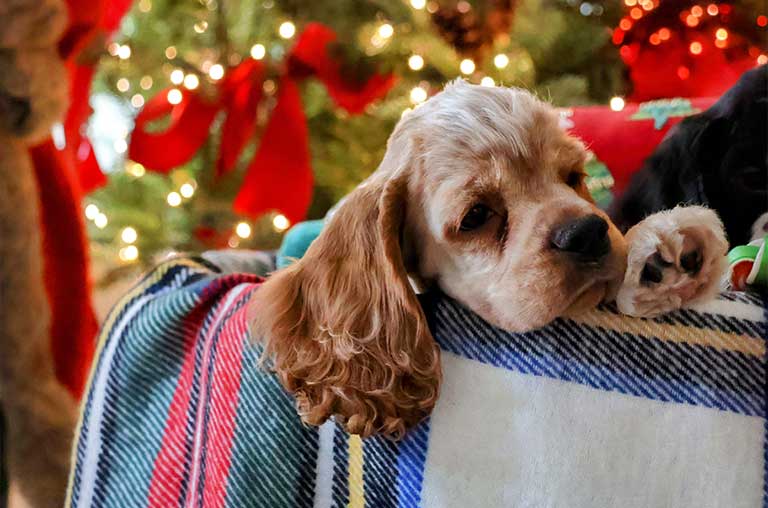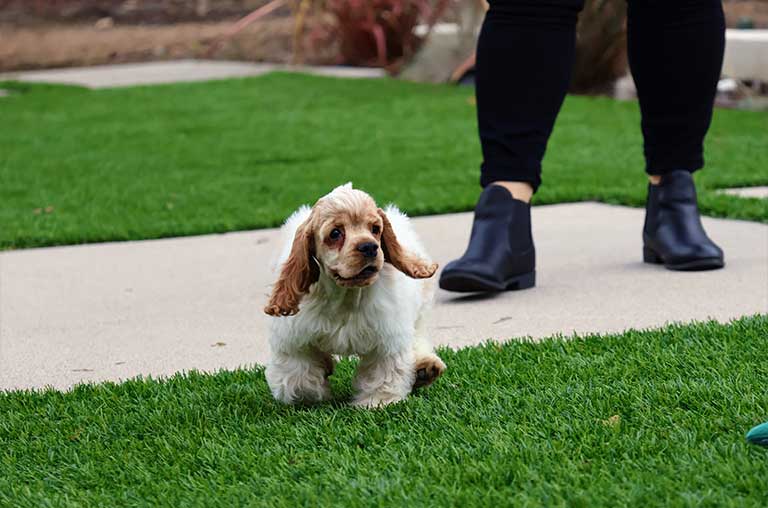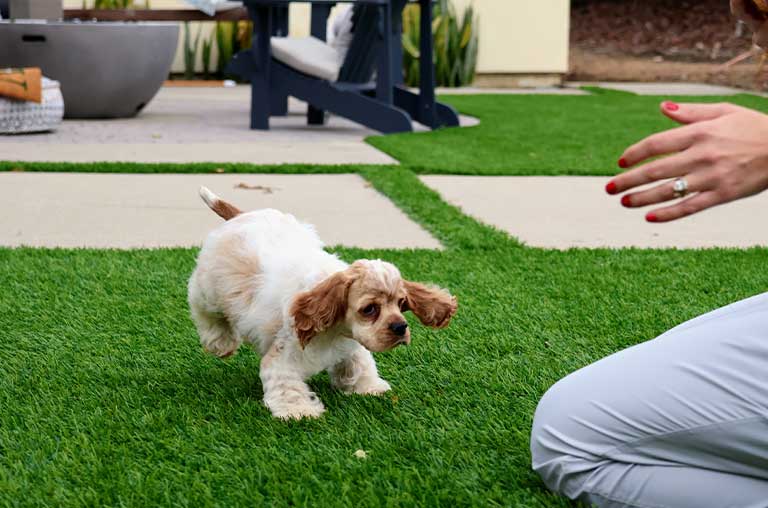If you notice your senior dog not eating but drinking water for a long time, you must be worried & thinking, what to do now? The concern is very common in owners with senior dogs. With aging, your furry friend often develops age-related health issues that affect their appetite and overall well-being.
This can be a sign of various underlying health issues that require immediate attention from a veterinarian. Keep reading this blog to know the reasons behind the issue and tips to recover from this situation.
What’s Causing “Your Senior Dog Not Eating But Drinking Water” Issue
The senior dog suddenly not eating but still drinking water may exhibit a common symptom of various underlying medical conditions. Some possible reasons for this behavior include the following:
Dental problems
Inspect your pet’s teeth and oral health if your senior dog not eating but drinking water often. Drooling, pawing at the mouth, foul breath, discolored teeth, or swollen gums are some warning signs to watch out for. Your dog stopped eating but still drinking water can be caused by dental problems, which you must cure. Older dogs can have loose or missing teeth, making eating difficult and painful.
They may still be able to drink water without difficulty. If you notice your senior canine is drooling while eating & avoiding food periodically for a couple of days, that’s a sign of oral disease. Vets can run some tests & most likely find the reason behind the doggo’s disinterest in food. Identifying these issues at an early stage would be great for the treatment.
Gastrointestinal issues
Digestive problems, such as pancreatitis or inflammatory bowel disease, can cause nausea and loss of appetite in dogs.
Older dogs are prone to acid reflux, which can cause discomfort and pain in the stomach and esophagus, reducing appetite.
Pancreatitis is an inflammation of the pancreas, which can cause pain and discomfort in the digestive system. Senior dogs are more prone to this condition, making them avoid food.

Your dog not eating but drinking water and acting normal can happen due to an upset stomach, which could be caused by a variety of things, such as eating something they shouldn’t have or a sudden change in their diet.
On the other hand, inflammatory bowel disease is a chronic condition that affects the digestive tract, causing inflammation and irritation. This can make it difficult for senior dogs to digest food. However, during any of these situations, your dog may still drink water to stay hydrated.
Kidney disease
Kidney disease in the senior dog not eating but drinking water with an increased rate of urination can be another reason. One possible reason senior dogs with kidney disease may lose their appetite is that the disease can cause a buildup of waste products in the body, making the dog feel sick and lose interest in food. In addition, the disease can cause dehydration, leading to a lack of thirst and a corresponding decrease in appetite.
Another factor that can contribute to loss of appetite in senior dogs with kidney disease is the side effects of medication. Some medications used to treat kidney disease can cause nausea or upset stomach, leading to decreased appetite.
Cancer
Cancer in senior dogs can affect their appetite in different ways, depending on the location and stage of cancer. Some senior dog not eating but drinking water can completely happen due to the disease or the side effects of treatment, such as chemotherapy.
Here are some common ways that cancer can affect a dog’s appetite:
Pain: If the cancer is causing pain, the dog may be reluctant to eat or drink, as it may exacerbate the pain.
Nausea: Because of nausea, your old dog not eating but drinking water and vomiting can happen. Certain types of cancer can cause nausea in your dog.
Location of cancer: If the cancer is in the mouth or throat, it can make it difficult for the dog to eat and swallow. Similarly, if the cancer is in the gastrointestinal tract, it can cause diarrhea or constipation, which can affect the dog’s appetite.

Metabolic changes: Cancer can cause metabolic changes in a dog’s body, which can result in weight loss or gain, and in turn, affect the dog’s appetite.
Recent Changes
You may see your senior dog not eating but drinking water syndrome if you’ve recently made significant changes to his or her environment and lifestyle, including getting a puppy. This is because of the stress and turmoil. In such cases, the owner is responsible for making the shifting as painless as possible.
Aging
As dogs age, they may lose interest in food, especially if they are less active and burning fewer calories. They may still drink water to stay hydrated.
If you notice your senior dog not eating but drinking water, it is important to take them to a veterinarian for a check-up. The vet can help determine the underlying cause of the behavior and recommend the appropriate treatment. Your dog not eating but drinking water and sleeping a lot more than usual could be a sign of illness in dogs, including vomiting, diarrhea, lethargy, and a lack of interest in food.
What can you do to help a dog who’s not eating?
When a dog sniffs food but not eating can cause concern, as it may indicate an underlying health issue or a loss of appetite. Here are some steps you can take to help a dog who’s not eating:
Identify the cause
Try to determine why the dog is not eating. If your dog is exhibiting other symptoms such as vomiting, diarrhea, lethargy, or changes in behavior, it’s important to consult a veterinarian as soon as possible.
Feed smaller and more frequent meals
If your dog is not eating their entire meal, try feeding them smaller and more frequent meals throughout the day. This can also help with digestion.
Check the temperature and freshness of the food
Ensure the food is at an appropriate temperature and not stale or spoiled.
Encourage hydration
Make sure your dog has access to fresh water at all times. You can also offer them low-sodium chicken or beef broth to encourage them to drink more.
Consult with a veterinarian

If your senior dog not eating but drinking water behavior doesn’t improve or exhibits other symptoms, it’s important to consult a veterinarian. The doctor will perform a physical examination and run diagnostic tests to find out the underlying reason of your dog’s losing the appetite & provide proper treatment.
Encourage hydration
Make sure your dog has access to clean, fresh water at all times. If they are not drinking enough water, try offering them some low-sodium chicken broth or water with a small amount of canned food mixed in.
Try appetite stimulants
If your vet determines that there are no underlying health issues, they may prescribe an appetite stimulant to help the dog start eating again.
Provide a comfortable environment
Sometimes dogs lose their appetite because of stress or anxiety. Make sure your dog has a comfortable and quiet place to rest, and try to minimize any stressors in their environment.
Home Remedies
If your dog is not eating but still drinking water, it could be a sign of various health issues, so it’s important to consult a veterinarian. However, here are a few of dog not eating but drinking water home remedies that may help stimulate your dog’s appetite:
Offer some bone broth: Bone broth is a nutritious and flavorful liquid made by simmering bones, meat, and vegetables in water. It can be an excellent way to entice your dog to eat. You can either make it or purchase it from a store.
Try hand-feeding: Sometimes, a dog may be more inclined to eat if you hand-feed them. You can offer small bites of food from your hand and see if your dog responds.
How to Encourage Your Senior Dog to Eat More
Eating less is a normal sign for dogs, but a senior dog not eating but drinking water requires much monitoring. As dogs age, they become less active and may require fewer calories.
However, they still need a balanced diet to maintain a healthy weight. Encouraging your senior dog to eat more can help ensure they’re getting the nutrients they need without overfeeding them. Here are some ways how you can encourage your dog to eat more –
Switch to a High-Quality Senior Dog Food
As dog’s age, their nutritional needs change, and they require fewer calories. Switching to high-quality senior dog food that is specifically designed for their needs can encourage them to eat more. These foods are typically easier to digest and contain more protein to support their aging bodies.
Make the Food More Appetizing

Sometimes, dogs can get bored with their food, especially if you see your senior dog not eating but drinking water. It may be a reason for that. Adding a little bit of low-sodium chicken or beef broth to their food can make it more appetizing and encourage them to eat.
Add Some Texture
Senior dogs may have dental issues that make it difficult for them to chew their food. Adding some texture to their food, such as canned food or wet food, can make it easier for them to eat and encourage them to eat more.
Feed Smaller Meals More Often
The senior dog not eating but drinking water may be a reason your dog has a more challenging time digesting large meals, so feeding them smaller meals more often throughout the day can help encourage them to eat more. This can also help prevent stomach upset or other digestive issues.
Warm up the food
Warming up your dog’s food can make it more enticing and help bring out its aroma.
Make mealtime more enjoyable
Feed your senior dog in a quiet and comfortable area. Some dogs may prefer to eat alone, while others may benefit from the company of their family members.
Add flavor and variety
Adding a small amount of low-sodium broth or canned food to your dog’s kibble can make it more appealing. You can also try rotating different flavors and brands of food to keep mealtime interesting.
Consider Supplements
If your senior dog has a medical condition or has lost his appetite, consult with your veterinarian about adding supplements or appetite stimulants to his diet.
Address dental problems
Dental issues can make eating painful for senior dogs. Regular dental check-ups and cleanings can help prevent dental problems and make eating more comfortable for your dog.
Remember, if the senior dog not eating but drinking water or experiencing any other health issues, it’s essential to consult with your veterinarian to rule out any underlying medical conditions.
When To See A Vet

If you notice your senior dog not eating but drinking water, monitoring the situation closely and taking appropriate action is essential. Here are some general guidelines to help you determine when to see a vet:
Duration of the problem
The senior dog avoiding eating for two days or less may not be an immediate cause for concern. However, if the problem persists and the old dog not eating for 3 days for more than a few days, it is time to schedule a visit with your vet.
Other symptoms
If your senior dog is exhibiting other symptoms, such as lethargy, vomiting, diarrhea, or changes in behavior, it indicates that something is wrong, and you should take your pet to the vet immediately.
Appetite changes
Consulting with a veterinarian is a good idea if your senior dog typically has a healthy appetite but suddenly loses interest in food.
In general, if you notice a significant change in your senior dog’s eating habits or behavior, it is always a good idea to consult with your veterinarian. Your vet can help identify the underlying cause and provide appropriate treatment to help your pet feel better.
Conclusion
So, if you have a senior dog not eating but drinking water, it is important to take them to the veterinarian for a thorough check-up. The veterinarian can help diagnose the underlying cause and recommend appropriate treatment to improve your dog’s appetite and overall health. As pet owners, we are responsible for ensuring that our furry friends receive the best possible care to live healthy and happy lives, especially as they enter their golden years.
FAQ
1. What Does It Mean When An Older Dog Stops Eating?
The majority of dogs lose hunger as they age. Dental deterioration and discomfort from eating tough foods like kibble are also some of the typical reasons.
2. How Long Can a Dog Live with Water But No Food?
As long as they are drinking water, dogs may survive three to five days without meals.
3. Should I Force My Senior Dog Eat?
No, do not try to make your dog eat against their will or constantly place food in front of their nose. It may become difficult to get them to eat as a result of developing a dislike for the meal.
4. When Should You Euthanize An Old Dog?
If your dog’s veterinarian advises euthanasia for an old dog that is suffering from illness and no longer has excellent welfare, or the capacity to enjoy life. It could be appropriate to think about euthanasia if your elderly dog is in discomfort and is unable to stand or move by themselves, for instance.
5. Is It Common for Older Dogs to Lose Their Appetite?
Yes, older dogs frequently show symptoms of a loss in their appetites. The reason behind it could be the dogs experience nausea due to digestive issues, or as a result of cancer.
![Senior Dog Not Eating But Drinking Water [Cause & Guide]](https://cuttinbluefarms.com/wp-content/uploads/2023/04/Senior-Dog-Not-Eating-But-Drinking-Water-Cause-Guide.jpg)
I do have 13 years old flattie, and have been dealing with some issues of olddog, though she tries to be cherful.
Thank you for all this great info. I have a 10 yar old Great Dane, that just stopped eating his food. I’ve tried so many different types of food, he’ll still eat most human food but not a lot. We’re going to try the most frequent small meals. Thank you for the help!!